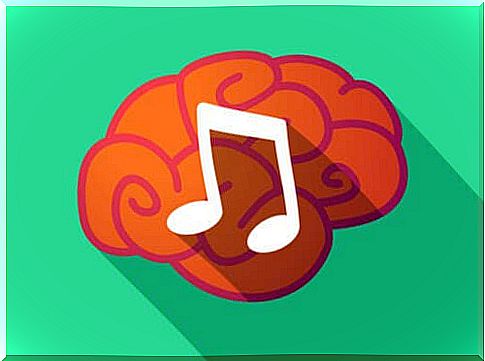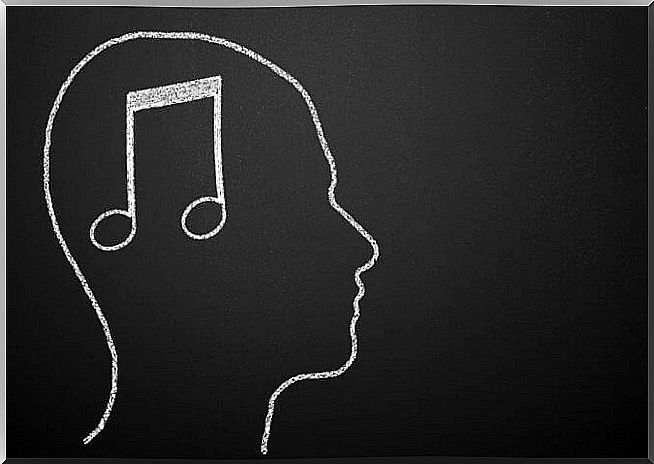How Does Music Influence The Internalization Of Messages?

The internalization of messages is possible through numerous means. Music, as a very important element in our culture and in our daily life, is one of them. There are many styles that can fit or influence our mood and our personality. In this sense, there are songs that are even considered a style of modern poetry.
The lyrics in music allow this to be a means of transmitting messages. Messages that, in one way or another, when a song is successful make a kind of echo in society, influencing, for example, how we feel part of it.
How does music work in our body?
Music can have a great influence on our cognitive development. Since ancient times, it was used as an instrument of relaxation. But how does music influence us?

Emotions are regulated, to a large extent, by what is considered our “emotional brain”, made up of the amygala, the hypothalamus, the hippocampus and the thalamus. Known as the “limbic system”, this part of the brain is in charge of regulating all the emotions that we emit in response to various stimuli from the environment : fear, disgust, joy, grief, euphoria, sadness, etc.
When listening to music, different chemical substances are activated at the level of the Central Nervous System. These produce the release of different neurotransmitters, such as dopamine or endorphins, which cause us a feeling of well-being and joy.
The truth is that there are songs that are capable of generating, practically universally, emotions. In this way, that person who empathizes with a certain melodic message, who has his own, can feel his limbic system being activated very intensely.
Music in the internalization of messages
As we have seen, music can be an emotion-inducing stimulus and facilitator of the internalization of messages. For example, in a choice or reasoning situation, it can reduce the amount of energy needed to make a decision. In part, the messages conveyed through music can function as behavior guides.
At the social level, melodies have the power to generate bonds of union between different people or groups. Thus, the feeling of belonging to a group can be reinforced when songs that are highly identifying with that group are sung. This is what many hymns achieve, for example. In the end, a melody and a letter give unity to the group, constituting it as a symbolic element that represents and defines them.
Some example of a musical genre: the RAC style
The RAC (Rock Against Communism) style emerged around the 80s as a genre variant of rock music, associated with the skinheads movement . At that time concerts against racism were organized, to fight against the rise of separatist movements. By contrast, different political parties of nationalist and far-right ideology adapted the style of punk music for their political purposes.
The RAC has a content based on racism and xenophobia, mainly. The problem arises, as we have already hinted, at the moment when we as spectators can make their message our own. The idealization of the group or the singer can lead us to justify and materialize what he sings.
Later, the prejudices that develop with these types of songs can guide our behavior. They are used mainly as quick answers and arguments in situations that require greater cognitive complexity. In this way, it allows us to create (and believe) a predetermined idea about something or someone without having previously verified the veracity of their arguments.

The RAC in Spain
In Spain some groups of this genre of music were created. They became quite popular in the early 2000s, although afterwards some were convicted of a hate crime. The speech that they express in their lyrics sometimes touches the limit between the criminal offense and the freedom of expression, protected in our Constitution as a fundamental right. However, it is sometimes difficult to distinguish between one and the other.
The benefits of music have been confirmed in numerous experiments at the brain and body level. Likewise, music is part of our culture, becoming defined through it.
We cannot ignore the fact that songs form an important means of learning and that through their lyrics an internalization of messages can take place. Therefore, in some way we are obliged to pay attention to what we hear and what it is transmitting to us, as it may be influencing the formation of our thoughts.









